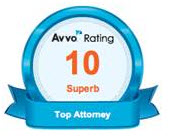Chapter 11 bankruptcy can offer financial relief to a beleaguered business, but before you decide on any legal route regarding your professional finances, you do need to understand the requirements and the consequences of filing bankruptcy as a business. One of the most important considerations is how the bankruptcy might impact you personally.
Whether or not your personal debts and assets are involved in a business bankruptcy case depends heavily on which type of business formation you chose. If your company is a sole proprietorship, you likely have the most potential personal liability at stake. For purposes of a bankruptcy, your business and personal assets are often treated the same, which means they will both be included in the bankruptcy. On the one hand, this can be alarming because your personal assets, such as cars and homes, could be at risk. On the other hand, if you are struggling with both types of debts, a Chapter 11 filing takes care of the entire problem and there are ways to keep certain assets such as a home.
If you are involved in a partnership, then your personal assets might also be at risk in a bankruptcy. A partnership isn't like a sole proprietorship; the partnership itself is a separate entity. However, partners aren't fully protected against liabilities of the business, which means a Chapter 11 bankruptcy could mean selling certain personal assets to make payment on debts. You might be able to file for bankruptcy protection, though.
Finally, your corporation might file for Chapter 11. Because corporations exist completely separate from you personally, you have very little personal liability involved in such a case. By working with a Chapter 11 bankruptcy attorney, you can understand what your liability could be and how to protect your assets.
Source: U.S. Courts, "Chapter 11 - Bankruptcy Basics," accessed July 08, 2016








No Comments
Leave a comment